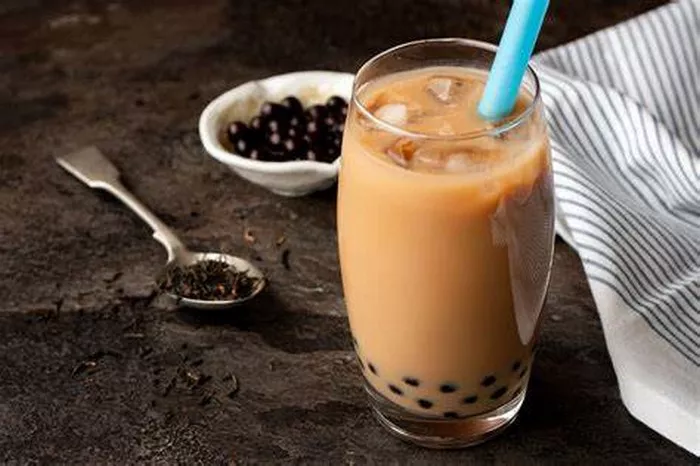Breastfeeding mothers often face a plethora of questions regarding their diet and its impact on their nursing infants. Among the myriad of queries, the consumption of milk tea, a popular beverage enjoyed worldwide, frequently arises. While some advocate for its benefits, others caution against potential drawbacks. In this article, we delve into the science behind milk tea consumption during breastfeeding, separating fact from fiction to provide clarity for nursing mothers.
Understanding the Components of Milk Tea
Before assessing its effects on breastfeeding, it’s crucial to comprehend the composition of milk tea. Milk tea typically consists of brewed tea, milk (or a milk substitute), and sugar or sweeteners. The type of tea used can vary, with black tea being the most common, although green tea and other varieties are also popular choices.
Potential Benefits of Milk Tea for Breastfeeding
Hydration: Proper hydration is essential for nursing mothers to maintain adequate milk production. Milk tea, particularly when consumed without excessive amounts of added sugar or caffeine, can contribute to hydration levels.
Nutrient Content: Tea, especially green and black varieties, contains antioxidants such as catechins and flavonoids, which may offer health benefits for both mother and baby. Additionally, if fortified with milk or a milk substitute, milk tea can provide essential nutrients like calcium and vitamin D, supporting overall maternal health.
Galactagogue Properties: Some anecdotal evidence suggests that certain herbal teas, such as fenugreek or fennel tea, may possess galactagogue properties, potentially enhancing milk supply. However, more research is needed to substantiate these claims fully.
See Also: Does Hot Chocolate Increase Breast Milk Production?
Potential Concerns of Milk Tea Consumption
Caffeine Content: One of the primary concerns regarding milk tea consumption during breastfeeding is its caffeine content. While moderate caffeine intake is generally considered safe for most breastfeeding mothers, excessive consumption can lead to irritability, poor sleep patterns, and potential effects on the nursing infant.
Allergies and Sensitivities: Some infants may exhibit sensitivities or allergies to components found in milk tea, such as cow’s milk proteins or certain additives. It’s essential for breastfeeding mothers to monitor their baby’s reactions closely and consult with a healthcare professional if any concerns arise.
Caloric Intake and Weight Management: Sweetened milk teas can contribute to increased calorie consumption, which may be a concern for breastfeeding mothers trying to manage their weight. While occasional indulgence is unlikely to have significant effects, frequent consumption of high-calorie beverages may impact maternal weight management goals.
Guidelines for Safe Milk Tea Consumption during Breastfeeding
Moderation is Key: As with any food or beverage, moderation is crucial when consuming milk tea during breastfeeding. Limiting caffeine intake to recommended levels (typically less than 300 mg per day) and opting for unsweetened or lightly sweetened varieties can help mitigate potential risks.
Stay Hydrated: While milk tea can contribute to hydration, it should not replace water as the primary source of fluids. Breastfeeding mothers should aim to drink plenty of water throughout the day to ensure optimal hydration levels.
Be Mindful of Ingredients: Pay attention to the ingredients used in milk tea, particularly if purchasing from cafes or restaurants. Opt for options with minimal added sugars and avoid artificial additives or flavorings whenever possible.
Monitor Infant Reactions: If introducing milk tea into your diet while breastfeeding, closely monitor your baby for any adverse reactions, such as changes in behavior, sleep patterns, or digestive issues. If concerns arise, consult with a healthcare provider for guidance.
Consider Individual Factors: Every breastfeeding mother and baby pair is unique, so it’s essential to consider individual factors such as maternal caffeine sensitivity, infant health, and dietary preferences when deciding whether to include milk tea in your breastfeeding diet.
Conclusion
In conclusion, milk tea can be a part of a breastfeeding mother’s diet when consumed in moderation and with attention to ingredients and caffeine content. While it may offer certain benefits such as hydration and nutrient supplementation, potential concerns regarding caffeine intake and allergenicity warrant careful consideration. Ultimately, breastfeeding mothers should prioritize a balanced and varied diet that supports both maternal health and optimal infant nutrition. Consulting with a healthcare professional or lactation specialist can provide personalized guidance and support in navigating dietary choices during the breastfeeding journey.


